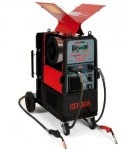You’ve done your time in the trenches. You’ve dreamed of it. You’ve worked toward it. You sought out the opportunity. Now it is your turn to be the boss. So now what? Do you really know what to do? Do you know what not to do? If there is one thing that I have learned, it is that there is no one single right choice in management. There are however, many wrong choices and misconceptions.
Just because you hold the position of a leader, does not mean your followers will accept and acknowledge you as their leader. Before anyone will follow you, that person must first respect you. Respect cannot be commanded, it must be earned. Using tyranny to force the hand of your employees does not produce true followers out of them. You may see yourself as a “manager” in those shoes, but your employees will see you as a jerk and a joke. Be firm, but not a tyrant.
Don’t be negative all the time. It is inevitable; you will have to have an unpleasant talk with an employee at some point. So don’t let every “talk” be unpleasant. Never forget to complement your employees for the good stuff. Find something they did well and point it out occasionally. “Hey Sam, good job finding that squeak in Mrs. Jones car. She went to two other shops and they couldn’t find it.”
“You’re fired!” is not the answer to every unpleasant employee situation. Get the facts of the situation, talk about it, and learn how to prevent it from happening with other employees. Maybe you failed to make your expectations or rules clear. Maybe the choice the employee made was one that you would have made yourself if you were in their position. Besides, you want your business to run smoothly…. right? It is a strain on the company resources to constantly train new employees. Furthermore, the new employee may make far worse choices of action than those made by the one you fired.
Don’t let employee-to-employee ill feelings fester. It usually starts as something simple. Billy didn’t say “good morning” to Johnny one day. Or maybe Frank thinks that Chris is being fed all of the “gravy” work.
As a leader, it is your duty to fix these issues as soon as possible. If not, they will fester into a full-blown employee-to-employee war. Call all parties involved to a neutral area, not one of their service bays, and not into your office. Go to the parts stock room, back parking lot, or even take them to lunch or dinner (your treat).
Get them to talk to each other about the problem. As a third party, you should only break in occasionally to point out key facts. Keep a low tone to the discussion. The parties involved will likely work it out on their own under these circumstances. If not, you will then be in a better position to make an informed decision on resolving the matter yourself.
Avoid price wars. It seems like everywhere I look I see shops in a price war between each other, especially when running “sales” or “special.” If price marketing is your shop’s only marketing angle, then your shop is doomed. There will always be someone who tries to be cheaper than you. If you plan to “make it up on volume,” then you are just planning to run your shop into bankruptcy at a faster rate. This also shows you are planning to lower overall quality by rushing your employees and using inferior parts. Good, fast, cheap; you can have only two.
Stop worrying about what the shop down the street is charging. Worry more with what your own shop needs to perform a quality repair. I have met with the occasional customer who has asked, “Do you know what the other shops charge?” I have responded, “No Ma’am (or Sir), and I don’t want to know. I know what it costs for me to repair your vehicle with top quality standards, and that is all I’m concerned with.”
Don’t dwell on “car count” so much. A high car count may look nice, however it is not the car count that matters; it is the net profit that does. Net profit goes beyond mark-ups and labor rates. Every shop expense attacks the net profit.
Trying to “cram” too many vehicles through the shop at once can jeopardize that net profit. That is because every car you service is a liability. Not just on the actual work you performed, but also on every other little thing that the customer imagines you did. Automobiles are machines and we all know that they break without warning.
“It didn’t do that before you worked on it.” We have all heard that at least once. Sometimes these situations can become very serious for the shop. Ask yourself; which is more secure? $100 dollars of net profit from one ticket, or $100 dollars of net profit from four tickets collectively. The first one is more secure because it is only threatened by one liability.
“Nobody” is “always right.” Neither the customer nor the shop or it’s employees. Sure, we would like our shops to come out on top of all situations. However, occasionally, we may drop the ball. Be fair to both sides. This goes for more than just that cracked hubcap the customer is blaming you for. This goes for your employee situations that arise too. But remember, in the interest of keeping piece, the shop may need to receive the short end of the deal. Weigh the costs, give benefit of the doubt, view it from the “other side,” and be fair.
Never allow shop equipment to continue in disrepair. Just as certain as vehicles break down, so does the shop equipment used to fix them. Repair or replace them immediately. Blocks of wood used on lift arms, worm-gear hose clamps on air hoses at the coupler, and burned out lights are only a small example of common repair shop issues that are both dangerous and shameful. The dollars spent to repair worn shop equipment should not be viewed as an “expense,” but as an “investment” toward higher overall production and lower liabilities from injuries.
All work and no play can make the shop seem like a forced labor camp. Try holding a shop meeting at a restaurant, bowling alley or family fun center (your treat of course). Don’t forget to include the spouses and children.
Local shops are not your “enemy” unless you allow it to happen. Go out and meet the owners and managers of the surrounding shops. It is far less likely they will try to bad-mouth your shop to customers once your shop has a friendly and familiar face. In addition, some shops attract business they cannot handle. Some shops, especially fast-lubes, are known to create a little work occasionally as well. Why not be the shop they refer or sublet to?
Invite the new friends you just made from tip #11 out to dinner, cookout or some other event. Not only is it always nice to make a new friend, but that new friend may have some great management or marketing advise of their own to share with their new friend.
Above all, especially if you have a significant other and/or children to return home to each night, leave your work and its stresses at the shop where it belongs. Your home and family should be your retreat away from the stress of running a repair shop. That oil drain plug that fell out will cost you the same amount regardless of how upset it makes you. Why go home and let your family worry over it too? Why loose sleep over it?
I know this can seem easier said than done. Try looking at it from the stand point of, what’s done has been done. Getting stressed out over it won’t undo the situation. You are a “manager” now. Manage the situation by not letting it effect your health or those close to you.
I hope a few of these management tips are of help to either the rookie manager, or even the seasoned veteran.








